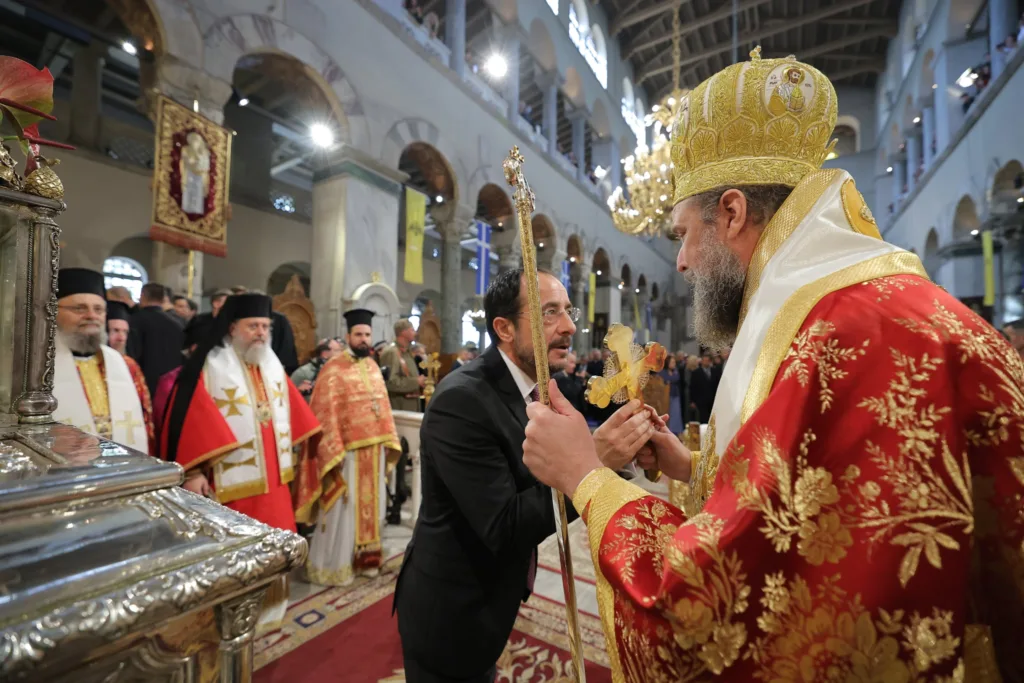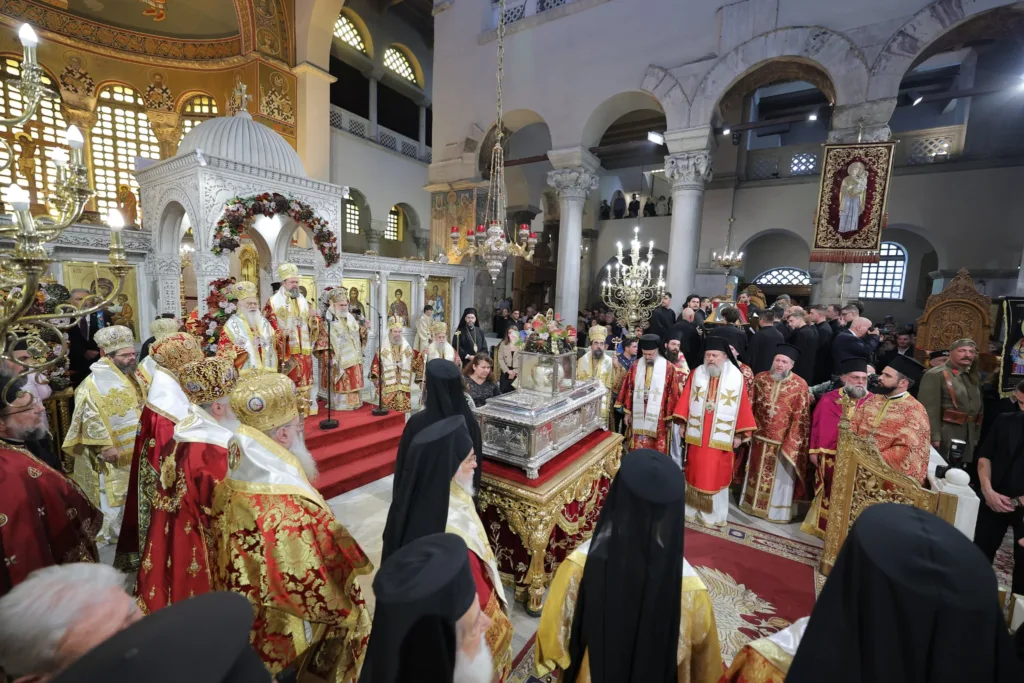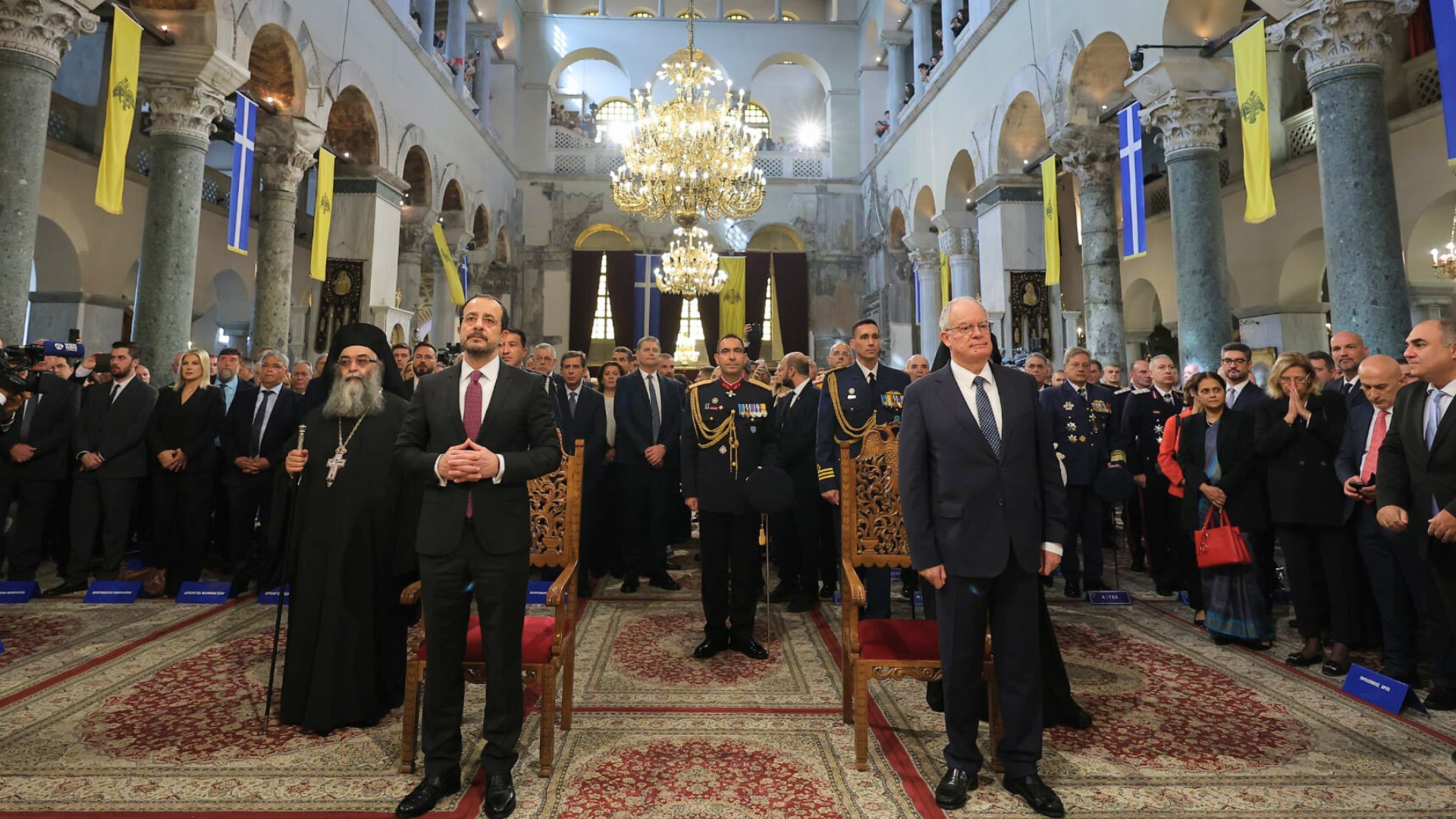An official Doxology took place at the Church of St Demetrios in Thessaloniki on Sunday, attended by the President of the Hellenic Republic, Konstantinos Tasoulas, to mark the double celebration of the city’s patron saint and the 113th anniversary of Thessaloniki’s liberation.
The morning began with the raising of the national flag at the White Tower and a 21-gun salute.
President Tasoulas was received by Chief of the Hellenic National Defence General Staff, General Dimitrios Choupis, before being greeted by government representatives including Deputy Minister Kostas Gioulekas, Regional Governor Athina Aidona, Mayor Stelios Angeloudis, and Metropolitan Philotheos of Thessaloniki.
Together, they welcomed Cypriot President Nikos Christodoulides before entering the church for the service.

The Doxology was presided over by Metropolitan Philotheos of Thessaloniki, with Metropolitan Panteleimon of Veria leading the Orthros and sermon, joined by numerous hierarchs and bishops from across Greece.
The ceremony was also attended by political leaders and dignitaries, including SYRIZA’s Sokratis Famellos, NIKI’s Dimitris Natsios, PASOK’s Rania Thraskeia, EU Commissioner Apostolos Tzitzikostas, MEPs, MPs, local officials, and senior members of the Armed Forces and Security Corps, reflecting the national significance of Thessaloniki’s feast day.
Born in 280 AD, Saint Demetrios was martyred in 306 AD after being sentenced to death by Emperor Galerius for his Christian faith. His relics, once kept in San Lorenzo, Italy, were returned to Thessaloniki in 1980, where they remain enshrined in the Church of Saint Demetrios.
Revered as the protector and miracle-worker of Thessaloniki, Saint Demetrios is closely linked to the city’s liberation, which occurred on his feast day, October 26, 1912.

On that day, Hasan Tahsin Pasha, commander of the Ottoman forces, surrendered Thessaloniki to the Greek Army, represented by Lieutenant Colonel Victor Dousmanis and Captain Ioannis Metaxas.
Over 26,000 Ottoman troops laid down their arms, handing Greece a pivotal victory in the First Balkan War.
Greek forces entered the city the following day to jubilant crowds, while Crown Prince Constantine and later King George I led celebrations marked by parades, church services, and a 21-gun salute at the White Tower.
Today, the historic Topsin residence, where surrender negotiations took place, houses the Military Museum of the Balkan Wars, displaying relics, uniforms, and weapons from the conflict.
The museum’s courtyard also contains the tomb of Hasan Tahsin Pasha and his son Kenan Mesare, underscoring the enduring legacy of the events that shaped Thessaloniki’s modern history.
